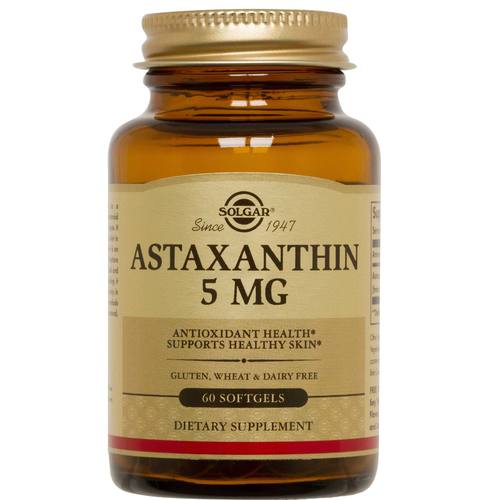 Astaxanthin is a phytochemical that belongs to the xanthophyll category of carotenoids. Xanthophylls are biological antioxidants and are able to cross the blood brain barrier of mammals. Evidence suggests that astaxanthin is neuroprotective. For example, in animal models of depression, administration of astaxanthin to rodents is able to prevent experimentally induced brain changes that would normally result in depressive behaviour. The mechanisms of these changes is understood to involve neuroinflammation and the generation of inflammatory cytokines in the hippocampus and prefrontal cortex of the rodents, and based on this it has been suggested that astaxanthin is able to modulate this neuroinflammation and in doing so confers neuroprotective effects against the development of mood changes. Further studies of astaxanthin in animals suggests that it may have an influence of the serotonergic system of neurotransmission, particularly in the hippocampus, frontal cortex, striatum and hypothalamus.
Astaxanthin is a phytochemical that belongs to the xanthophyll category of carotenoids. Xanthophylls are biological antioxidants and are able to cross the blood brain barrier of mammals. Evidence suggests that astaxanthin is neuroprotective. For example, in animal models of depression, administration of astaxanthin to rodents is able to prevent experimentally induced brain changes that would normally result in depressive behaviour. The mechanisms of these changes is understood to involve neuroinflammation and the generation of inflammatory cytokines in the hippocampus and prefrontal cortex of the rodents, and based on this it has been suggested that astaxanthin is able to modulate this neuroinflammation and in doing so confers neuroprotective effects against the development of mood changes. Further studies of astaxanthin in animals suggests that it may have an influence of the serotonergic system of neurotransmission, particularly in the hippocampus, frontal cortex, striatum and hypothalamus.

Astaxanthin appears to be an effective anti-inflammatory compound that is able to operate within the brain tissue. This should not be surprising as astaxanthin is known to be an antioxidant in mammalian tissue and to be able to cross the blood brain barrier. Astaxanthin is only produced by algae, and so eating algae or the animals that consume algae is the only way to obtain it without the use of supplements. Astaxanthin is also an effective antioxidant that may improve general antioxidant status and therefore have other more widespread health effects against diseases associated with free radical damage.
Eat Well, Stay Healthy, Protect Yourself
RdB
